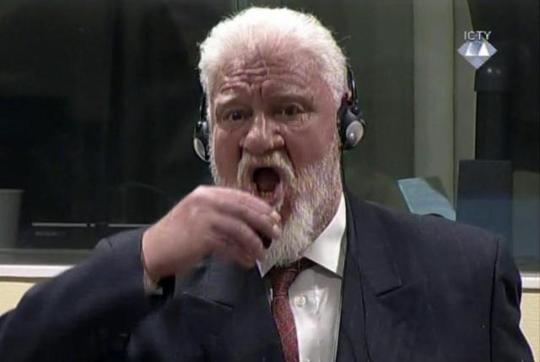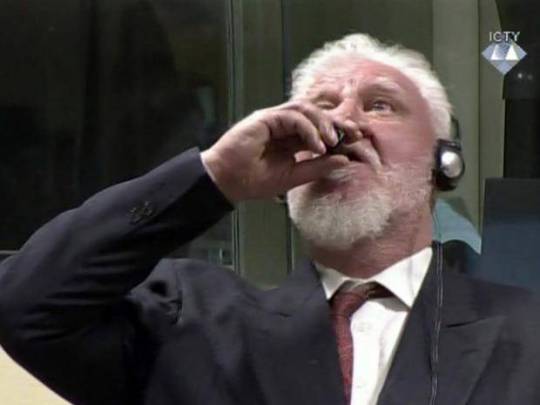#Slobodan Praljak
Explore tagged Tumblr posts
Text
Sobodan Šnajder, „Koliko vam treba pušaka?”
Nakon što se šezdesetosmaški val povukao, svašta je ostalo na žalu. Nikad toliko knjiga o melankoliji kao u to doba. (Ja sam imao jednu u nacrtu, ali sam, za razliku od svog prijatelja Dževada Karahasana, od nje odustao. Ne dakako i od melankolije.) Godine koje su uslijedile vidjele su podjele među nama koje su se, do ’71., produbile do nesnošljivosti. No varaju se oni koji misle da su one došle…
#1968#1971#bunt mladih#mostarska ćuprija#slobodan praljak#slobodan šnajder#studentski centar#studentski prosvjedi#zagreb
0 notes
Text
30 godina od rušenja Starog mosta u Mostaru 😢
Da se ne zaboravi kako su 9.11.1993. vojnici Hrvatskog vijeća obrane pod komandom Slobodana Praljka odradili jedan od najgnjusobnijih činova u ratovima 90-tih 😡.
youtube
View On WordPress
0 notes
Text
Nikola Tesla! Krist Novoselic! Josip Broz Tito! Adrian Chiles! Dr Kovac from ER! Slobodan Praljak! Your boys took a hell of a beating! A hell of a beating!
13 notes
·
View notes
Text
On this day in Wikipedia: Wednesday, 29th November
Welcome, velkommen, bienvenue, dobrodošli 🤗 What does @Wikipedia say about 29th November through the years 🏛️📜🗓️?

29th November 2022 🗓️ : Death - Derek Granger Derek Granger, British film and television producer and screenwriter (b. 1921) "Derek Granger (23 April 1921 – 29 November 2022) was a British film and television producer, and screenwriter. He worked on Brideshead Revisited, A Handful of Dust, and Where Angels Fear to Tread...."
29th November 2017 🗓️ : Death - Slobodan Praljak Slobodan Praljak, Croatian general (b. 1945) "Slobodan Praljak (Croatian pronunciation: [slobǒdan prǎːʎak]; 2 January 1945 – 29 November 2017) was a Bosnian Croat war general who served in the Croatian Army and the Croatian Defence Council, an army of the Croatian Republic of Herzeg-Bosnia, between 1992 and 1995. Praljak was found guilty of..."
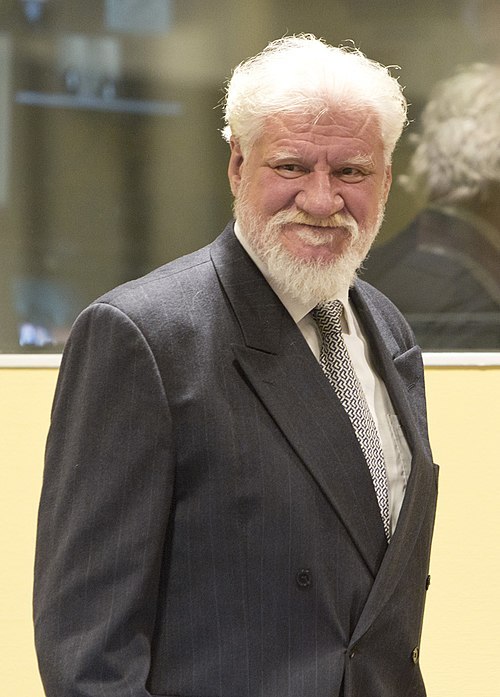
Image licensed under CC BY 2.0? by Zoran Lesic
29th November 2013 🗓️ : Event - LAM Mozambique Airlines Flight 470 LAM Mozambique Airlines 470 crashes in the Bwabata National Park in a pilot mass murder-suicide, killing all 33 people on board. "LAM Mozambique Airlines Flight 470 was a scheduled international passenger flight from Maputo, Mozambique, to Luanda, Angola. On 29 November 2013, the Embraer E190 twinjet operating the service crashed into the Bwabwata National Park in Namibia, halfway through its flight, killing all 27 passengers..."

Image licensed under GFDL 1.2? by Sunil Gupta
29th November 1973 🗓️ : Birth - Fredrik Norrena Fredrik Norrena, Finnish ice hockey player "Fredrik Jan Elis Norrena (born November 29, 1973) is a Finnish former professional ice hockey goaltender. He played 100 games in the National Hockey League with the Columbus Blue Jackets between 2006 and 2008. The rest of his career, which lasted from 1992 to 2014, was mainly spent in Europe, where..."

Image licensed under CC BY 2.0? by Elliot from Castro Valley, California, USA
29th November 1923 🗓️ : Birth - Chuck Daigh Chuck Daigh, American race car driver (b. 2008) "Charles George Daigh (November 29, 1923 – April 29, 2008) was an American racing car driver. He broke into Grand Prix racing through Lance Reventlow's Scarab team, through the virtue of being one of the resident engineers. Born in Long Beach, California, he participated in six World Championship..."
29th November 1823 🗓️ : Birth - La Fayette Grover La Fayette Grover, American lawyer and politician, 4th Governor of Oregon (d. 1911) "La Fayette Grover (November 29, 1823 – May 10, 1911) was a Democratic politician and lawyer from the U.S. state of Oregon. He was the fourth Governor of Oregon, represented Oregon in the United States House of Representatives, and served one term in the United States Senate...."

Image by Mathew Benjamin Brady
29th November 🗓️ : Holiday - Christian feast day: Brendan of Birr "Saint Brendan of Birr (died c. 572) was one of the early Irish monastic saints. He was a monk and later an abbot, of the 6th century. He is known as "St Brendan the Elder" to distinguish him from his contemporary and friend St Brendan the Navigator of Clonfert. He was one of the Twelve Apostles of..."

Image licensed under CC BY-SA 4.0? by Andreas F. Borchert
0 notes
Text
¿Por qué nos gusta lo grotesco?
Uno de los videos más vistos en YouTube es el video de un criminal de guerra del Genocidio de Bosnia, Slobodan Praljak, quien bebió veneno durante su juicio en La Haya, Países Bajos. Los videos más grotescos incluyen la decapitación de periodistas o imágenes de guerra, que nunca rechazamos y siempre consumimos. Sin embargo, ¿por qué los medios sienten la necesidad de mostrar imágenes y videos tan grotescos? Mi interpretación: las imágenes extremas y provocativas no nos permiten darles la espalda, así informan y documentan la realidad vivida de la guerra o de las tensiones sociales y nos obligan a ser conscientes de dicha realidad. En consecuencia, creo que las pinturas pueden representar el sufrimiento, la injusticia y la guerra de la misma manera. Además, las pinturas nos permiten mirar hacia atrás y hacer una crítica, un examen reflexivo, del pasado. Un ejemplo es la pintura de Otto Dix “Cadáver en alambre de púas”, donde Dix representa a un soldado en la segunda guerra mundial sometido a un sufrimiento sin sentido con el fin de criticar la segunda guerra mundial y darle un espacio a las victimas del conflicto. Ahora, en otra ocasión le quisiera dedicar toda una entrada a Dix, pero hoy quisera hablar sobre el Cronos de Goya.
Francisco de Goya, en su cuadro “Saturno devorando a su hijo”, representa a un padre, Cronos, que se come la cabeza de su hijo. La razón detrás de este crimen bárbaro fue solo una profecía que Cronos quería asegurarse de que no se hiciera realidad: Cronos iba a ser asesinado por uno de sus hijos, al igual que él mató a su padre. Paseando por los pasillos del Prado uno no está permitido poner la otra mejilla y alejarse de este cuadro sumamente provocativo. Uno mira la pintura y siente miedo solo para luego descubrir que los políticos y los criminales de guerra cometen crímenes similares: matan porque sienten una fuerte repulsión hacia sus víctimas, odian lo que representan en sus vidas. Goya utilizó este cuadro como un acto de rebelión hacia el Gobierno español. Este cuadro fue pintado durante el establecimiento de un gobierno liberal en 1820 que luego fue derrocado por los franceses en 1823. Así, Goya, a través de este cuadro, puede estar utilizando a Cronos como metáfora de la corona francesa y española que devoraba las esperanzas de todos los jóvenes que soñaban con un gobierno liberal. Las pinturas provocativas envían efectivamente un mensaje sobre la guerra, la violencia, el sufrimiento y los crímenes que prevalecerán a lo largo de la historia. La representación de la guerra demuestra la verdadera naturaleza de la violencia en nuestra especie.
Pinturas como “Saturno devorando a su hijo” o como el video del criminal de guerra, por más grotescas que sean, siempre serán consumidas porque nos generan curiosidad, nos genera curiosidad ver a los extremos a los que llega el egoísmo humano y la violencia que logramos infringir en otros seres humanos. Estas pinturas y estos videos nos recuerdan que por más de que seamos seres dotados de racionalidad, somos igual de crueles que cualquier otro animal sobre la tierra.
0 notes
Photo
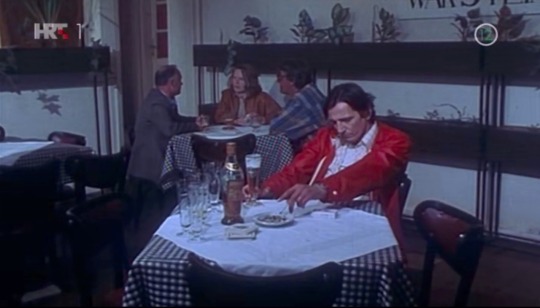
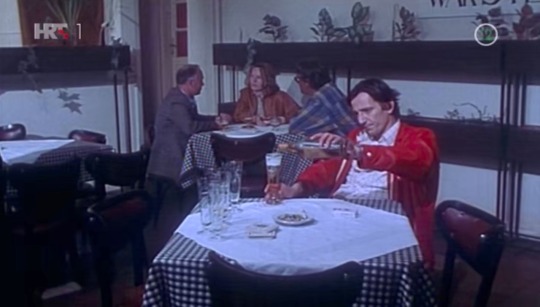
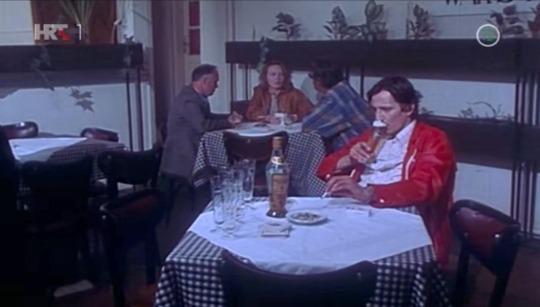
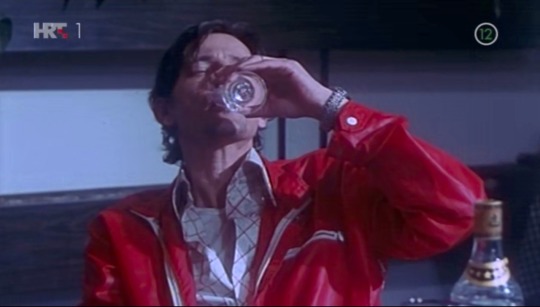
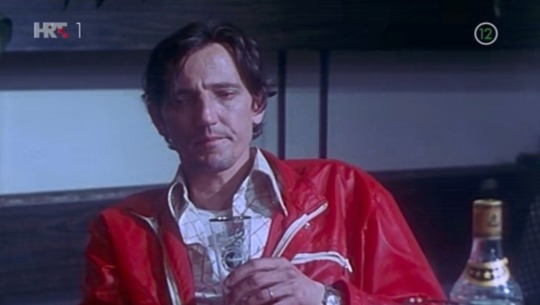
An unusual action, first time ever on film: pouring rakija into a glass of beer. Slobodan Praljak: Povratak Katarine Kožul (The Return of Katarina Kožul), 1989
24 notes
·
View notes
Photo
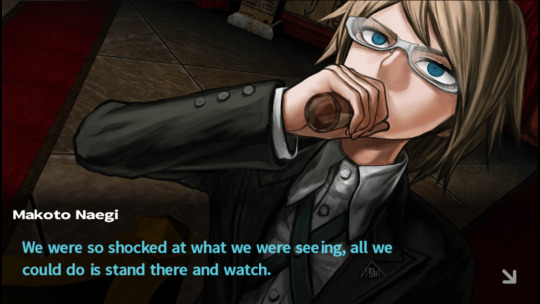

has this been done before
36 notes
·
View notes
Photo
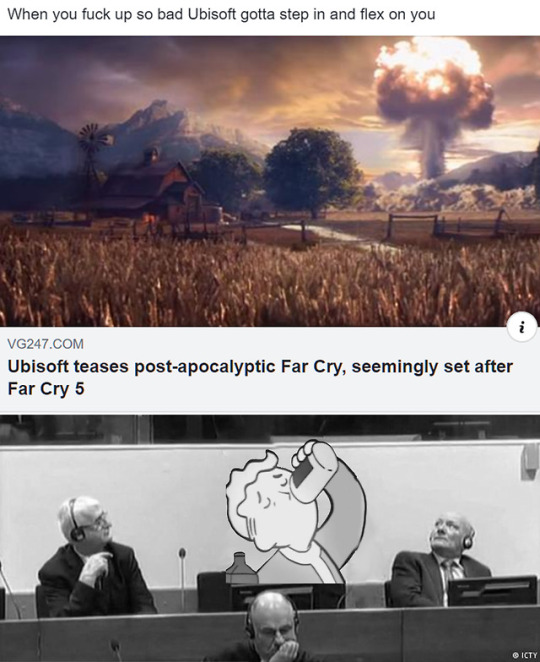
RIP
104 notes
·
View notes
Text
Ma nemoj! 😡
Ma daaa, to je taj tipičan hrvatski “častan” general, duša od covjeka, svetac koji je hodao zemljom!!! Lažovčina i najobicnija ljudska gnjida! A svi ovi što sad kukaju i nariču, oladite … ima nas što nas pamćenje ipak još koliko toliko služi, koji nisu zaboravili što je hercegovačka banda planirala i radila 90-tih i kojima ne možete prodavati te idiotke nacionalističke trkeljarije. Facebook link.
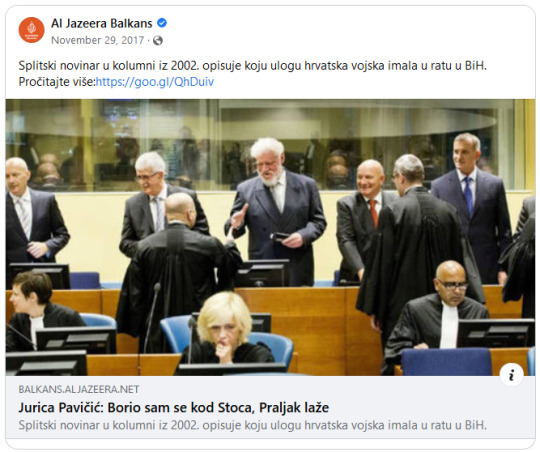
View On WordPress
0 notes
Photo

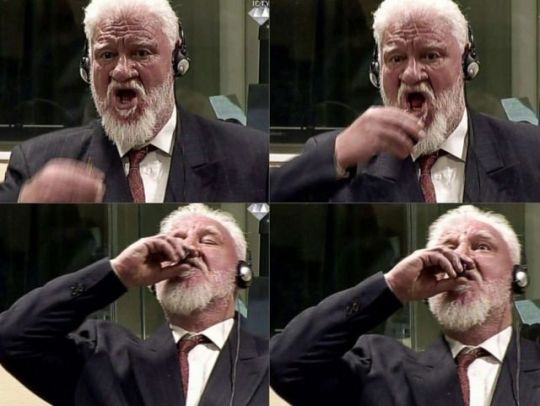
269 notes
·
View notes
Photo

Chupito y feliz navidad
79 notes
·
View notes
Photo
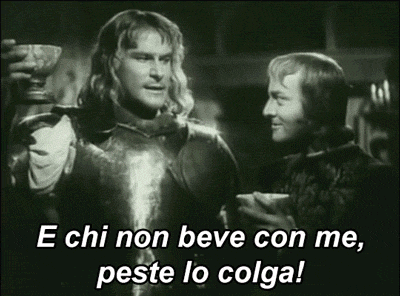
122 notes
·
View notes
Text
Godišnjica presude: Udruženi zločinački poduhvat i agresija Hrvatske na BiH
Godišnjica presude: Udruženi zločinački poduhvat i agresija Hrvatske na BiH
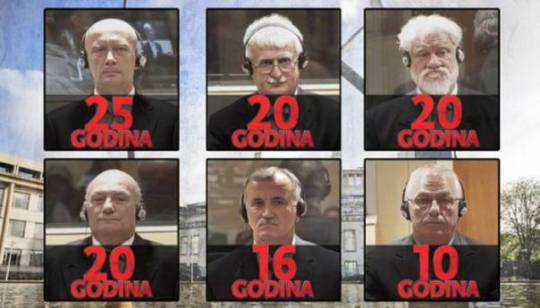
Na današnji dan 2017. godine Žalbeno vijeće suda u Hagu je potvrdilo osuđujuće presude čelnicima tzv. Herceg-Bosne Jadranku Prliću, Bruni Stojiću, Slobodanu Praljku, Milivoju Petkoviću, Valentinu Ćoriću i Berislavu Pušiću za Udrženi zločinački poduhvat u osam opština i pet zarobljeničkih centara na teritoriji Bosne i Hercegovine.
Prlić je osuđen na 25 godina zatvora, Stojić, Praljak i Petkovića…
View On WordPress
0 notes
Photo
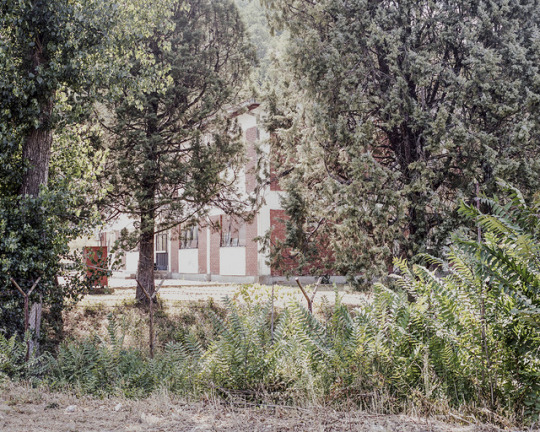
Slobodan Praljak, one of the commanders of HVO convicted by ICTY for taking part in joint criminal enterprise responsible for war crimes in the Mostar and Herzegovina areas, committed suicide in court today after his appeal was overturned, shouting that he’s innocent.
Dretelj, from Makeshift series.
The camp was reportedly overcrowded and the inmates were physically abused. There was a lack of food and many inmates suffered from malnutrition. There was also a general lack of hygiene at this camp. Bosnian Croat authorities who allegedly ran the camp admitted to Helsinki Watch representatives that the camp conditions were substandard. They blamed overcrowding as the reason for the substandard conditions. The inmates were reportedly subjected to various forms of torture including having needles pushed under their finger and toe nails, being burned with candles and cigarettes, having their tongues impaled with knives, being forced to give guards rides on their backs, and being forced to eat grass and drink their own urine. Other prisoners were forced to lick the toilets clean. According to one report, several prisoners managed to survive detention at this facility, although an undetermined number of prisoners were tortured and killed at Dretelj. (source: ICRC Final Report, Annex VIII: Camps)
#makeshift#bosnia#bih#arbih#hvo#dretelj#capljina#yugoslvia#camp#bosnian war#documentary#atrocityland#war crimes#herzegovina#bosna i hercegovina#croatia#hrvatska#praljak#icty#slobodan praljak
21 notes
·
View notes


